
Find Help
More Items From Ergsy search
-

Does water reflect UV rays, increasing the risk of sunburn?
Relevance: 100%
-

What causes sunburn?
Relevance: 72%
-

What is Sunburn?
Relevance: 72%
-

At what time of day is the sunburn risk highest?
Relevance: 68%
-
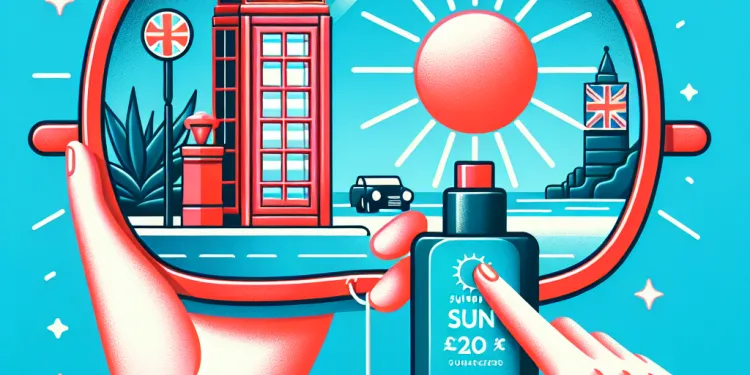
What is sunburn?
Relevance: 61%
-
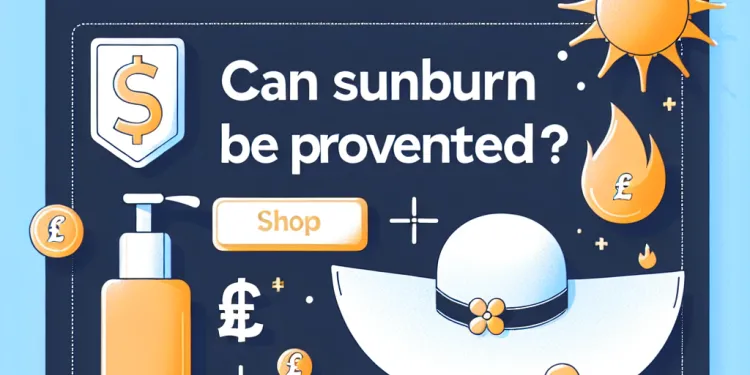
Can sunburn be prevented?
Relevance: 60%
-

What are UVA and UVB rays?
Relevance: 60%
-

Are some people more prone to sunburn?
Relevance: 59%
-

Self care - sunburn
Relevance: 54%
-
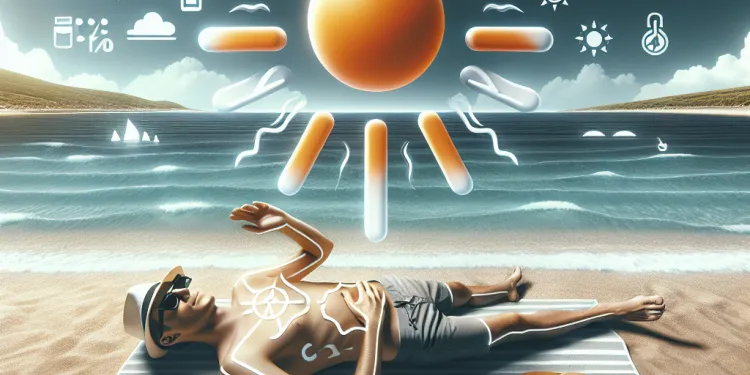
Can sunburns cause permanent damage?
Relevance: 51%
-
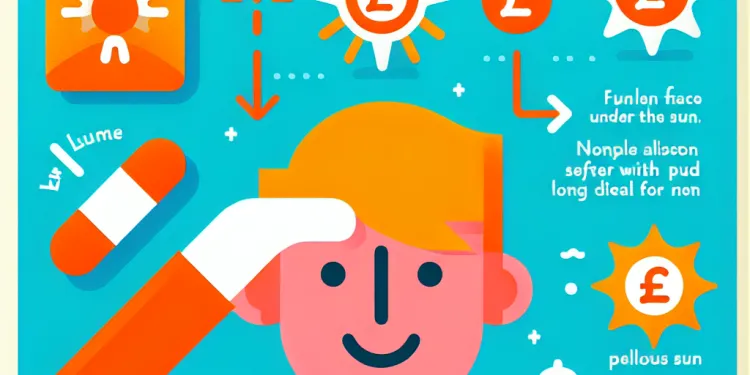
What are the long-term effects of sunburn?
Relevance: 50%
-

How is sunburn treated?
Relevance: 50%
-
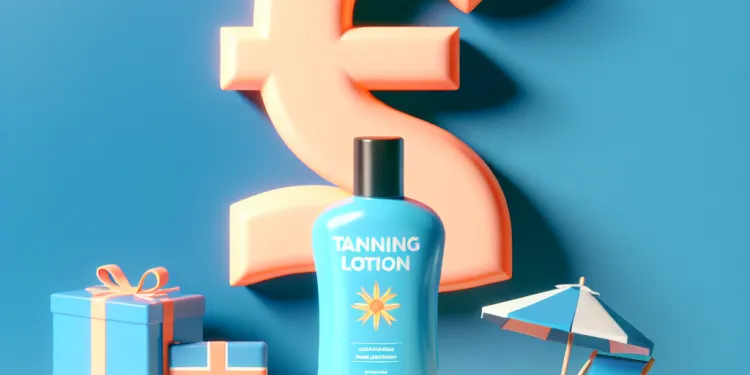
Does tanning lotion prevent sunburn?
Relevance: 49%
-

Can sunburn turn into a tan?
Relevance: 48%
-

What SPF level is recommended to prevent sunburn?
Relevance: 48%
-

Does tanning on sunbeds reduce the risk of future sunburns?
Relevance: 48%
-

How long does it take for sunburn to appear?
Relevance: 48%
-

Self care - sunburn
Relevance: 48%
-

Can dark-skinned individuals get sunburned?
Relevance: 46%
-

What are the symptoms of sunburn?
Relevance: 44%
-

Is peeling a normal part of sunburn recovery?
Relevance: 39%
-

Do I need sunscreen on cloudy days?
Relevance: 35%
-
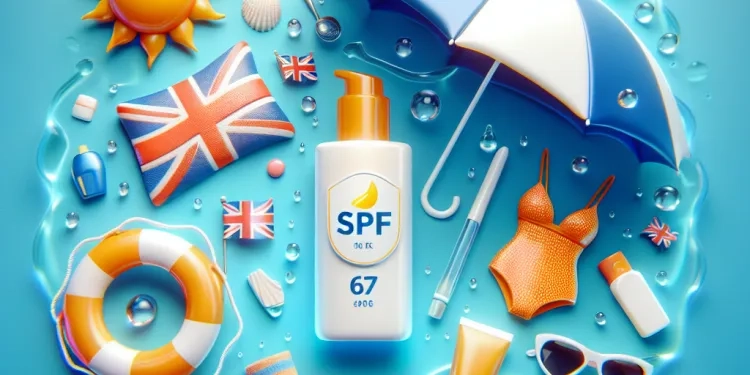
Do I need a different SPF for water-related activities?
Relevance: 34%
-

Is it possible to get sunburned on cloudy days?
Relevance: 34%
-

What is UV radiation?
Relevance: 31%
-
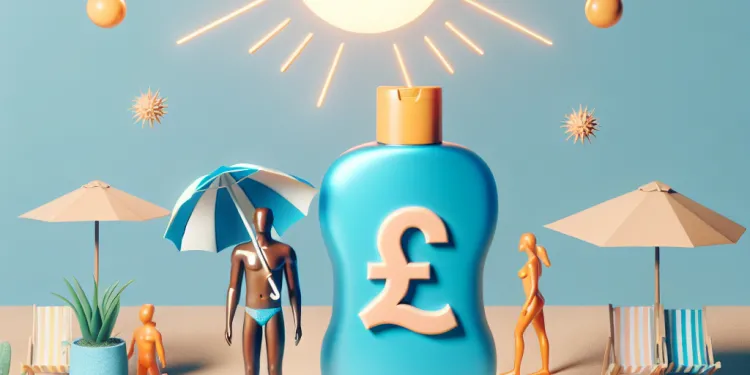
Why do some people not burn as easily as others?
Relevance: 29%
-

Which factor sunscreen should I use?
Relevance: 28%
-

What to do if you're sunburnt
Relevance: 27%
-

What SPF should I use if I am going to be outdoors all day?
Relevance: 27%
-

Are water companies responsible for maintaining water infrastructure in the UK?
Relevance: 27%
-

What are the financial implications of water loss for the UK?
Relevance: 26%
-

How old is the water infrastructure in the UK?
Relevance: 26%
-

How do water companies detect leaks?
Relevance: 26%
-

Which UK water companies are going to refund their customers?
Relevance: 25%
-

Do water companies have long-term infrastructure plans?
Relevance: 25%
-

How significant is the water loss problem in the UK?
Relevance: 25%
-

What is the role of a water regulator in my claim?
Relevance: 25%
-

Are there penalties for not maintaining water infrastructure?
Relevance: 25%
-

What causes water loss in the UK?
Relevance: 25%
-

Are there legal guidelines for sewage discharge into UK waters?
Relevance: 24%
Introduction
When enjoying a sunny day at the beach or near a pool, many people worry about getting sunburnt. A common question is whether water reflects ultraviolet (UV) rays, potentially increasing the risk of sunburn. Understanding how UV rays interact with water can help in taking the necessary precautions to protect your skin from damage.
How Water Reflects UV Rays
Water does indeed have reflective properties, but it is not highly effective in reflecting UV rays. According to studies, water reflects about 5% to 10% of incident UV radiation. This means that while some UV rays are reflected off the surface, a majority penetrate the water. Despite this relatively low reflection rate, it's important to consider other factors that may contribute to an increased risk of sunburn.
Factors Influencing UV Exposure Near Water
One major factor is the angle of the sun. When the sun is directly overhead, UV rays strike the water surface more directly, slightly increasing reflectivity. Additionally, UV rays can scatter after hitting the water, and this scattered light contributes to increased UV exposure. For individuals in the UK, where sunny days are cherished, it's easy to underestimate the harmful effects of UV rays on overcast days, especially near water bodies.
Furthermore, wet skin can be more susceptible to UV penetration. When you come out of water, your skin is wet, which can dilute the sunscreen applied on your skin, reducing its effectiveness and increasing the risk of sunburn.
Precautions to Minimize Risk
To minimize the risk of sunburn when spending time near water, it is crucial to take certain precautions. First, apply a broad-spectrum sunscreen with a high sun protection factor (SPF) regularly, especially after swimming or sweating. Pay special attention to areas prone to sunburn, such as the shoulders, face, and back.
Wearing protective clothing, such as hats, sunglasses, and UV-protective swimwear, can also reduce UV exposure. Seeking shade during peak sun hours, usually between 11 am and 3 pm in the UK, further limits direct sun exposure. If possible, try to avoid being outdoor during these hours.
Conclusion
In summary, while water reflects a small percentage of UV rays, it is not the primary factor increasing sunburn risk near water. The reflection can slightly enhance UV exposure, but the primary risks come from prolonged exposure to direct sunlight, scattered UV rays, and decreased sunscreen efficacy due to water. By understanding these factors and taking appropriate measures, you can enjoy your time in the sun safely.
Introduction
On a sunny day at the beach or by a pool, many people worry about getting a sunburn. A common question is if water bounces back the sun's UV rays and makes sunburns worse. Knowing how the sun's rays work with water helps you keep your skin safe.
How Water Reflects UV Rays
Water can bounce back a little sunlight but not much of the sun's UV rays. Water reflects only about 5% to 10% of UV rays. This means most UV rays go into the water. Even though water doesn't reflect a lot of UV rays, other things can still make sunburns worse.
Factors Influencing UV Exposure Near Water
One thing to think about is the sun's angle in the sky. When the sun is high, more UV rays hit the water. These rays can scatter and make more UV exposure. In places like the UK, people might not think UV rays are strong on cloudy days, but they can be, especially near water.
Also, if your skin is wet, more UV rays can get in. After swimming, your wet skin can wash off some sunscreen, making it less effective and your skin more likely to burn.
Precautions to Minimize Risk
To keep your skin safe by the water, do these things: First, put on lots of sunscreen with high SPF. Do this often, especially after swimming or sweating. Cover the easy-to-burn places like your shoulders, face, and back.
Wear protective clothes like hats, sunglasses, and swimwear that blocks UV rays. Find shade when the sun's strong, between 11 am and 3 pm. It is a good idea to stay inside during these hours if you can.
Conclusion
So, while water bounces back only a few UV rays, the bigger risk is being in the sun too long or without sunscreen. Sunlight, scattered rays, and washed-off sunscreen make sunburns likely. By knowing what to do and being careful, you can have fun in the sun safely.
Frequently Asked Questions
Useful Links
This website offers general information and is not a substitute for professional advice.
Always seek guidance from qualified professionals.
If you have any medical concerns or need urgent help, contact a healthcare professional or emergency services immediately.
Some of this content was generated with AI assistance. We’ve done our best to keep it accurate, helpful, and human-friendly.
- Ergsy carfully checks the information in the videos we provide here.
- Videos shown by Youtube after a video has completed, have NOT been reviewed by ERGSY.
- To view, click the arrow in centre of video.
- Most of the videos you find here will have subtitles and/or closed captions available.
- You may need to turn these on, and choose your preferred language.
- Go to the video you'd like to watch.
- If closed captions (CC) are available, settings will be visible on the bottom right of the video player.
- To turn on Captions, click settings .
- To turn off Captions, click settings again.
More Items From Ergsy search
-

Does water reflect UV rays, increasing the risk of sunburn?
Relevance: 100%
-

What causes sunburn?
Relevance: 72%
-

What is Sunburn?
Relevance: 72%
-

At what time of day is the sunburn risk highest?
Relevance: 68%
-

What is sunburn?
Relevance: 61%
-

Can sunburn be prevented?
Relevance: 60%
-

What are UVA and UVB rays?
Relevance: 60%
-

Are some people more prone to sunburn?
Relevance: 59%
-

Self care - sunburn
Relevance: 54%
-

Can sunburns cause permanent damage?
Relevance: 51%
-

What are the long-term effects of sunburn?
Relevance: 50%
-

How is sunburn treated?
Relevance: 50%
-

Does tanning lotion prevent sunburn?
Relevance: 49%
-

Can sunburn turn into a tan?
Relevance: 48%
-

What SPF level is recommended to prevent sunburn?
Relevance: 48%
-

Does tanning on sunbeds reduce the risk of future sunburns?
Relevance: 48%
-

How long does it take for sunburn to appear?
Relevance: 48%
-

Self care - sunburn
Relevance: 48%
-

Can dark-skinned individuals get sunburned?
Relevance: 46%
-

What are the symptoms of sunburn?
Relevance: 44%
-

Is peeling a normal part of sunburn recovery?
Relevance: 39%
-

Do I need sunscreen on cloudy days?
Relevance: 35%
-

Do I need a different SPF for water-related activities?
Relevance: 34%
-

Is it possible to get sunburned on cloudy days?
Relevance: 34%
-

What is UV radiation?
Relevance: 31%
-

Why do some people not burn as easily as others?
Relevance: 29%
-

Which factor sunscreen should I use?
Relevance: 28%
-

What to do if you're sunburnt
Relevance: 27%
-

What SPF should I use if I am going to be outdoors all day?
Relevance: 27%
-

Are water companies responsible for maintaining water infrastructure in the UK?
Relevance: 27%
-

What are the financial implications of water loss for the UK?
Relevance: 26%
-

How old is the water infrastructure in the UK?
Relevance: 26%
-

How do water companies detect leaks?
Relevance: 26%
-

Which UK water companies are going to refund their customers?
Relevance: 25%
-

Do water companies have long-term infrastructure plans?
Relevance: 25%
-

How significant is the water loss problem in the UK?
Relevance: 25%
-

What is the role of a water regulator in my claim?
Relevance: 25%
-

Are there penalties for not maintaining water infrastructure?
Relevance: 25%
-

What causes water loss in the UK?
Relevance: 25%
-

Are there legal guidelines for sewage discharge into UK waters?
Relevance: 24%


